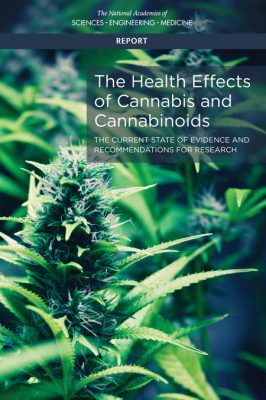Early Marijuana Use Linked To Abnormal Brain Function, Low IQ
 A study of depression and marijuana use found that using marijuana before the age of 17 was linked to abnormal brain function and lower IQ. In a 2016 article in the journal Acta Psychiatrica Scandinavica, researcher Elizabeth Osuch and colleagues described a study that compared four categories of youth: frequent pot users with depression, frequent pot users without depression, those with depression who did not use pot, and healthy individuals who did not use pot. The researchers also compared those who began using pot after the age of 17 to those who began earlier.
A study of depression and marijuana use found that using marijuana before the age of 17 was linked to abnormal brain function and lower IQ. In a 2016 article in the journal Acta Psychiatrica Scandinavica, researcher Elizabeth Osuch and colleagues described a study that compared four categories of youth: frequent pot users with depression, frequent pot users without depression, those with depression who did not use pot, and healthy individuals who did not use pot. The researchers also compared those who began using pot after the age of 17 to those who began earlier.
The main findings were that brain function in the areas of reward processing and motor control differed across the four groups. Depression was linked to deficits in brain function. Marijuana use did not correct these deficits, and in some parts of the brain, worsened them.
Those who had used marijuana before the age of 17 had abnormalities in memory, visuo-spatial processing, self-referential activity, and reward processing. Those who had started using marijuana at younger ages also had lower IQ scores.
National Academy of Sciences, Engineering and Medicine Issues Report on the Health Effects of Cannabis
 In early 2017, the National Academy of Sciences, Engineering, and Medicine issued its first comprehensive report on cannabis since 1999. Shifting public opinion over the past few decades has led to 28 states and the District of Columbia legalizing medical uses of marijuana, and eight states and DC legalizing recreational marijuana use. The Health Effects of Cannabis and Cannabinoids: Current State of Evidence and Recommendations for Research is intended to address the lack of accepted standards to guide individuals in deciding whether and how to use cannabis safely. In addition to summarizing recent health-related findings on cannabis, the report also offers recommendations to guide future research.
In early 2017, the National Academy of Sciences, Engineering, and Medicine issued its first comprehensive report on cannabis since 1999. Shifting public opinion over the past few decades has led to 28 states and the District of Columbia legalizing medical uses of marijuana, and eight states and DC legalizing recreational marijuana use. The Health Effects of Cannabis and Cannabinoids: Current State of Evidence and Recommendations for Research is intended to address the lack of accepted standards to guide individuals in deciding whether and how to use cannabis safely. In addition to summarizing recent health-related findings on cannabis, the report also offers recommendations to guide future research.
The report shares findings about possible therapeutic benefits to cannabis use as well as health impacts relating to areas such as cancer, respiratory disease, immunity, pre- and post-natal health.
There were several notable findings with regard to mental health. The committee that issued the report found substantial evidence of a statistical association between cannabis use and the development of schizophrenia or other psychoses, with the highest risk among the most frequent users.
The committee also found moderate evidence of a link between cannabis use and increased symptoms of mania and hypomania in people with bipolar disorder who use cannabis regularly. The report also describes moderate evidence of an association between heavy cannabis use and increased suicidal ideation and suicide attempts.
There was also moderate evidence that regular cannabis use is linked to social anxiety disorder.
The report described factors that may lead to problem cannabis use. The committee found substantial evidence that being male, smoking cigarettes, and beginning cannabis use at an earlier age are risk factors for developing problem cannabis use. Read more
Continuing Marijuana Use After a First Episode of Psychosis Increases Risk of Relapse
 A 2016 article in the journal JAMA Psychiatry reports that continuing to use cannabis after a first episode of psychosis increases risk of relapse. The study by Sagnik Bhattacharyya and colleagues employed longitudinal modeling to determine the role of cannabis use in psychotic relapse. The researchers followed 90 women and 130 men for two years after a first episode of psychosis, and found that the more marijuana they used, the more likely they were to have a relapse of psychosis.
A 2016 article in the journal JAMA Psychiatry reports that continuing to use cannabis after a first episode of psychosis increases risk of relapse. The study by Sagnik Bhattacharyya and colleagues employed longitudinal modeling to determine the role of cannabis use in psychotic relapse. The researchers followed 90 women and 130 men for two years after a first episode of psychosis, and found that the more marijuana they used, the more likely they were to have a relapse of psychosis.
Relapse rates were highest (59.1%) for participants who used pot continuously following their first episode of psychosis. Relapse rates were lower (36.0%) for those who used cannabis intermittently thereafter, and lowest (28.5%) among those who discontinued cannabis use after their first episode of psychosis.
A statistical test known as a cross-lagged analysis was used to establish that cannabis use affected later relapse, rather than relapse of psychosis leading to further cannabis use.
Another statistical strategy using fixed-effect models revealed that risk of psychotic relapse was 13% higher during times of cannabis use than during periods of no cannabis use.
These findings offer some hope that the likelihood of psychosis relapse can be reduced, since ongoing cannabis use is a risk factor that can be modified, unlike family history or genetics. Bhattacharyya and colleagues called for research into interventions that can help discourage cannabis use in people who have had a first episode of psychosis.
Editor’s Note: N-acetylcysteine, a nutritional supplement sold in health food stores, can reduce cannabis use compared to placebo in teen users.
Early Cannabis Use and BDNF Gene Variant Increase Psychosis Risk
 Normal variations in genes can affect risk of mental illness. One gene that has been implicated in psychosis risk is known as BDNF. It controls production of brain-derived neurotrophic factor, a protein that protects neurons and is important for learning and memory. Another important gene is COMT, which controls production of the enzyme catechol-O-methyltransferase, which breaks down neurotransmitters such as dopamine in the brain.
Normal variations in genes can affect risk of mental illness. One gene that has been implicated in psychosis risk is known as BDNF. It controls production of brain-derived neurotrophic factor, a protein that protects neurons and is important for learning and memory. Another important gene is COMT, which controls production of the enzyme catechol-O-methyltransferase, which breaks down neurotransmitters such as dopamine in the brain.
Several forms of these genes appear in the population. These normal variations in genes are known as polymorphisms. Certain polymorphisms have been linked to disease risk. A study by Anna Mané and colleagues published in the Journal of Psychiatric Research in 2017 explored links between COMT and BDNF polymorphisms, cannabis use, and age at first episode of psychosis.
Mané and colleagues found that among 260 Caucasians being treated for a first episode of psychosis, the presence of a BDNF polymorphism known as val-66-met and a history of early cannabis use were associated with younger age at psychosis onset.
The val-66-met version of BDNF occurs in 25-35% of the population. It functions less efficiently than a version called val-66-val.
The researchers also found that males were more likely to have used cannabis at a young age.
Editor’s Note: In the general population, marijuana use doubles the risk of developing psychosis. Previous data had indicated that the risk was higher for those with a COMT polymorphism known as val-158-val that leads to more efficient metabolism of dopamine in the prefrontal cortex. The resulting deficits in dopamine increase vulnerability to psychosis compared to people with the val-158-met version of the COMT gene.
The new study by Mané and colleagues suggests that a common form of BDNF may be associated with an earlier onset of psychosis. Bottom line: Pot is dangerous for young users and can induce psychosis, particularly in people at genetic risk. Pot may be legal in many places, but heavy use in young people remains risky for mental health and cognitive functioning.
The company Genomind offers genetic testing for BDNF and COMT variants as part of a routine panel.
Cannabis Use May Cause Schizophrenia
 Cannabis use has been linked to schizophrenia risk, and new genetic research suggests a causal relationship between the two. In a 2017 article in the journal Molecular Psychiatry, researcher Julian Vaucher and colleagues reported that lifetime cannabis use was linked to schizophrenia even when the researchers controlled for 10 genotypes weakly associated with lifetime cannabis use. This makes it unlikely that the schizophrenia caused the cannabis use, suggesting instead that it is the cannabis use that leads to a schizophrenia diagnosis.
Cannabis use has been linked to schizophrenia risk, and new genetic research suggests a causal relationship between the two. In a 2017 article in the journal Molecular Psychiatry, researcher Julian Vaucher and colleagues reported that lifetime cannabis use was linked to schizophrenia even when the researchers controlled for 10 genotypes weakly associated with lifetime cannabis use. This makes it unlikely that the schizophrenia caused the cannabis use, suggesting instead that it is the cannabis use that leads to a schizophrenia diagnosis.
Vaucher and colleageus also controlled for genetic associations between cigarette smoking and cannabis use to eliminate cigarette use as a third variable causing the association between cannabis and schizophrenia.
The study by Vaucher and colleagues included 34,241 people with schizophrenia and 45,604 healthy controls.

